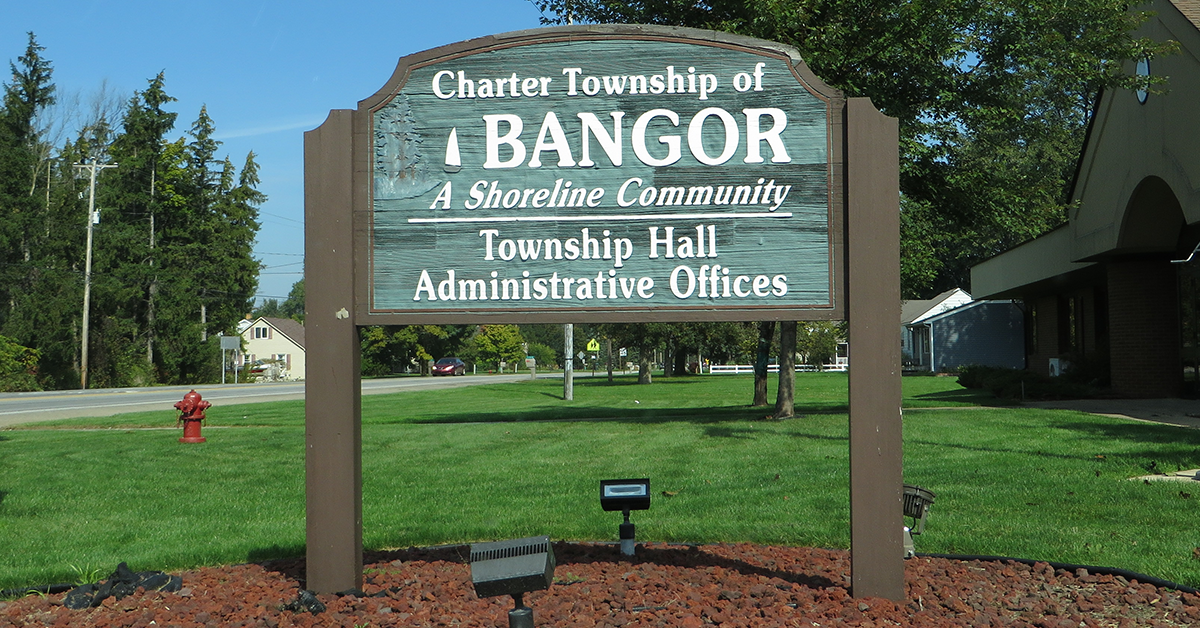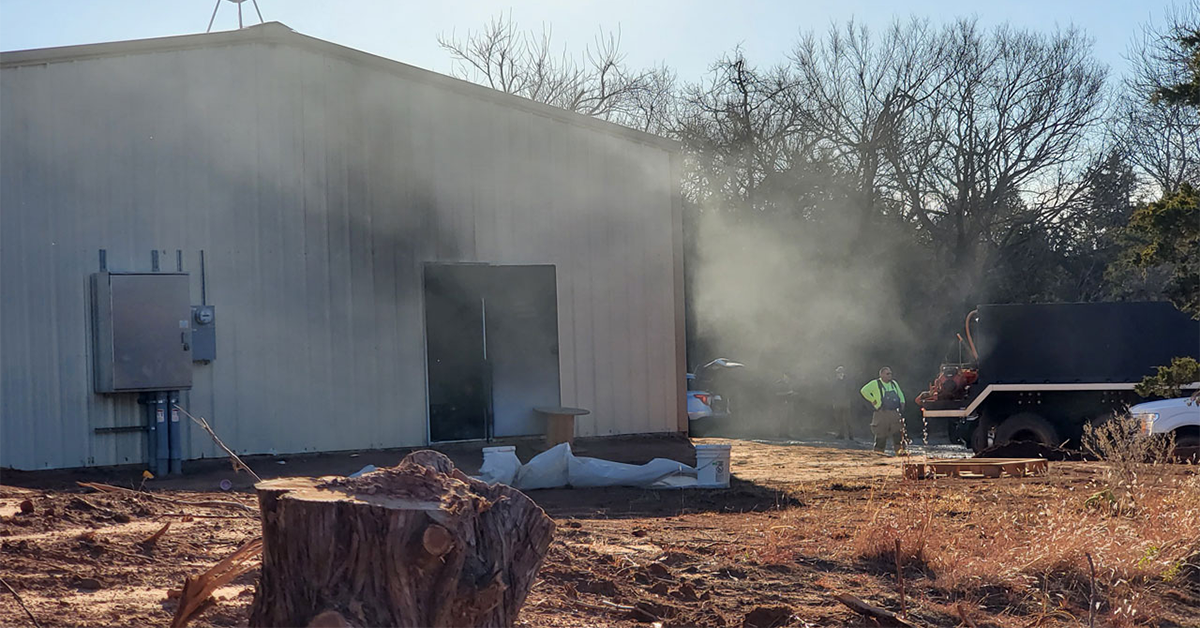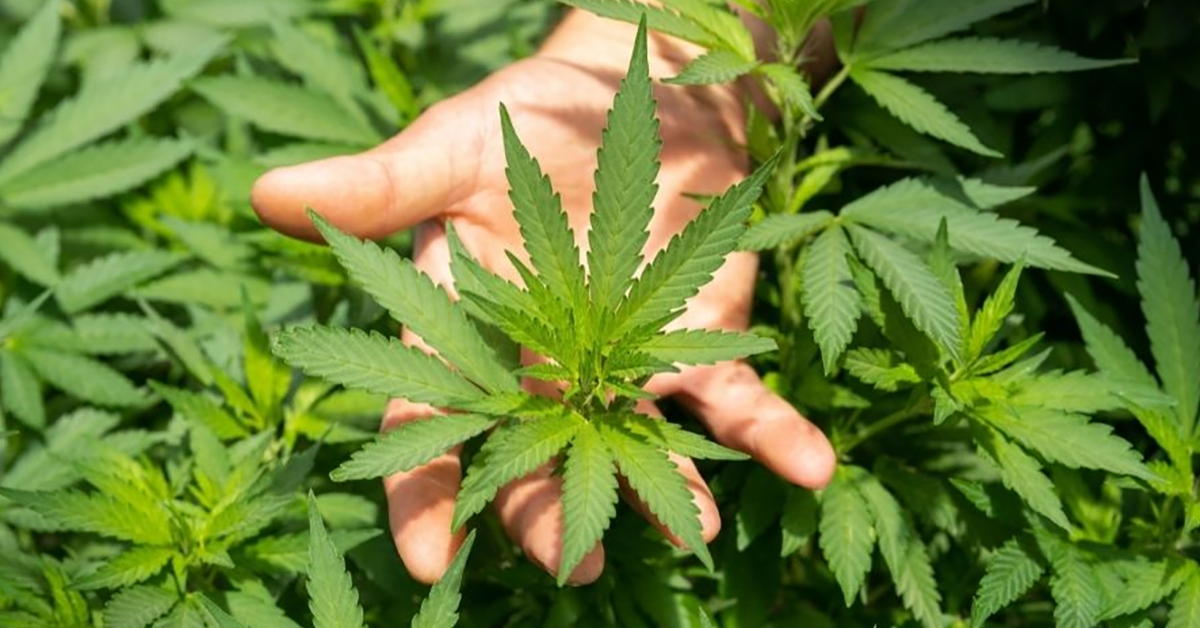Bangor Township Thrives Economically Thanks to Recreational Marijuana

In a significant economic milestone, Michigan's recent State House Fiscal Agency Report revealed that the state's revenue from recreational marijuana sales outpaced the combined earnings from beer, wine, and liquor in the last fiscal year. The burgeoning marijuana industry contributed a remarkable $266 million to the state's coffers, marking a notable shift in the state's economic landscape.
Bangor Township, a community in mid-Michigan, has emerged as a prime beneficiary of this development. Township Supervisor Glenn Rowley expressed his enthusiasm for the financial windfall brought about by recreational marijuana. "It's almost like the township was able to get a second job," Rowley remarked, highlighting the significant economic boost. The township received $627,000 in tax revenue from these sales, a substantial addition to its budget.
This influx of funds has been instrumental in enhancing local services and infrastructure. "This provided a revenue stream that allowed us to do a lot of things that you'd expect, like roads, clean drinking water, all the services that you would expect your government to provide to you. This helps fund it," Rowley explained. He also noted that Bangor Township was the second jurisdiction in Michigan to legalize recreational marijuana sales.
Despite initial skepticism, Rowley believes that perceptions are changing. He emphasized that the marijuana industry should not be seen through a stigmatized lens but rather as a professional and legitimate business sector. "It's not like a Cheech and Chong movie with a bunch of stoned people walking around like zombies," he said. "It's a business and it's professionals that are running them. And it's a great revenue stream for the municipalities."
Bangor Township currently hosts 11 recreational marijuana businesses, contributing significantly to the local economy. Including revenue from permits, the township's total earnings from the marijuana industry reached $902,000 in the last fiscal year. Rowley expressed his desire for further growth in this sector, acknowledging its role in funding community improvements like purchasing fire trucks and paving roads.
Michigan Appeals Court Upholds Denial of Insurance Claim for Marijuana Facility Fire

Conifer Insurance Co. has been ruled exempt from providing coverage for fire damage at a Michigan property used for marijuana cultivation, according to a recent decision by a state appeals court. The court found that the property owner, 23771 Blackstone LLC, did not comply with the policy's requirement for an automatic extinguishing system, leading to the denial of their insurance claim.
The ruling, delivered by a unanimous three-judge panel, supported Conifer's decision to deny coverage. This decision came despite Blackstone's argument that Conifer, aware of the property's lack of a suitable extinguishing system through its inspections, should not be allowed to refuse coverage. The court highlighted that the inspection reports were intended for Conifer's use and did not imply any agreement or understanding that would obligate Conifer to cover the damages despite non-compliance.
The property, located in Warren, Michigan, suffered a fire in June 2020. Conifer had issued an insurance policy to Blackstone in 2017, which was renewed annually. The policy included a clause necessitating an automatic extinguishing system, described as any system with connected sprinklers, discharge nozzles, ducts, valves, pumps, and tanks.
Blackstone contended that Conifer couldn't deny coverage because the insurer was aware of the absence of such a system. However, the court noted that the policy's specific terms indicated that the presence of an automatic extinguishing system was a fundamental condition of the insurance. The panel emphasized that any changes to the policy terms would require an official endorsement from Conifer, which was not present in this case.
Moreover, the court stated that while Michigan law allows for the reformation of insurance policies to reflect the actual agreement between parties, there was no evidence suggesting a mutual understanding that an extinguishing system was not required for coverage.
The panel comprised Judges Mark T. Boonstra, Michael F. Gadola, and Allie Greenleaf Maldonado, who collectively upheld the trial court's summary judgment in favor of Conifer Insurance Co.
An Open Message to Ohio from Michigan: Insights on Navigating the Legal Marijuana Landscape

With Ohio's recent decision to legalize recreational marijuana through Issue 2, there's a significant opportunity to glean lessons from neighboring states like Michigan, which have already traversed this path.
Learning from Hazel Park's Experience
In Hazel Park, a small city near Detroit, Mayor Mike Webb shared insights from his city's journey through marijuana legalization. Despite supporting recreational cannabis use, Mayor Webb highlighted the challenges encountered, particularly from individuals who manipulated the system for personal gain. The city's initial attempt to limit the number of dispensaries sparked a series of legal disputes from the 36 applicants vying for just four spots. These legal confrontations, as Michigan Attorney Barton Morris pointed out, often lead to prolonged litigation and significant financial strain for both the applicants and the city. Mayor Webb's advice to Ohio is clear: draft robust, legally sound ordinances to avoid similar pitfalls.
Ferndale's Proactive Approach
Ferndale, Michigan, provides another perspective. City Manager Joseph Gacioch emphasized the importance of appointing a dedicated cannabis expert within the municipal staff. This role is crucial for navigating the complexities of zoning, planning, and regulatory compliance in the cannabis industry. Wally Manju, who owns Nature's Remedy in Ferndale, echoed the importance of responsible ownership, cautioning against transient players in the market who might not be committed to long-term sustainability.
Employment and Drug Testing Policies
Michigan's approach to employment and drug testing in the context of legalized marijuana offers varied insights. While many governmental bodies have discontinued pre-employment marijuana screenings, private companies retain the discretion to test employees and applicants, with the potential to terminate employment based on positive results. Employment law expert Brett Gelbord highlighted the potential for legal challenges in Ohio, considering the prolonged detectability of cannabis in the body.
Implications for Ohio Schools
Educational institutions in Michigan, such as the Hazel Park School District, have observed an uptick in cannabis-related incidents. This shift necessitated the installation of vape sensors in school bathrooms, a measure Ohio schools might consider to curb THC vaping. The district's experience underscores the importance of adapting awareness and prevention programs to address the changing perceptions and availability of cannabis, akin to historical efforts focused on alcohol misuse.
Market Saturation Concerns
In Hazel Park, Mayor Webb noted concerns about market saturation, a sentiment echoed in Ferndale. The proliferation of cannabis stores in these areas raises questions about the sustainability of such a densely populated market. This stands in stark contrast to Detroit's more cautious approach, which only recently began to allow recreational dispensaries.
Reflecting on the broader impact, Mayor Webb acknowledged the financial benefits brought by legal marijuana but expressed reservations about its overall success. A critical aspect highlighted by Michigan residents is the sales tax on cannabis. Michigan's 10% rate, similar to Ohio's proposed rate, is strategically important to undercut the black market.
In Conclusion
These diverse experiences from Michigan offer Ohio a roadmap filled with both cautionary tales and successful strategies as it embarks on its own journey with legal recreational marijuana. From regulatory challenges to market dynamics, Ohio has the unique advantage of learning from its neighbor's experiences.
Michigan Cannabis Sales Experience Slight Dip in October, But Yearly Growth Remains Strong

Michigan's cannabis industry experienced a slight decrease in sales during October, reporting a 4.3% drop to $262.9 million compared to $274.7 million in September. Despite this monthly decline, the industry saw a notable annual increase, with sales rising 25.5% from October of the previous year. Notably, sales had reached their peak in July at $276.7 million.
A deeper look into the sales statistics reveals a significant shift in the market dynamics. Medical cannabis sales have dramatically decreased by 70.7% year-over-year, reaching just $4.9 million in October, a 10.2% decline from September. In stark contrast, adult-use cannabis sales have surged, showing a 33% increase compared to the same period last year, totaling $258.5 million. However, this segment also experienced a minor month-over-month decrease of 4.2%.
The cumulative sales for 2023 so far have increased by over a third compared to the first ten months of 2022. This growth trajectory suggests that the industry is on track to surpass $3 billion in sales by the end of the year.
In terms of product popularity among adult-use consumers, flower products lead with $118 million in sales. Vape cartridges followed with $49.5 million, inhalable compound concentrates at $27 million, and shake and trim sales at $23.2 million. This distribution underscores the diverse preferences in the Michigan cannabis market.
CRA Investigates 'Muha Meds' for Multiple Compliance Failures

Muha Meds, a well-known name in the sector, faced a recall advisory due to critical lapses in compliance with the state's "seed to sale tracking system," known as Metrc. This incident has heightened concerns regarding the oversight and management of cannabis products in the state.
Key Issues Leading to Recall Advisory
The recall advisory against Muha Meds was primarily issued due to the company's failure to properly track products in the Metrc system. This lapse in compliance led to the use of unknown cannabis oil in their products, posing potential risks to consumers. The inability to track the origin and journey of cannabis products from seed to sale is a significant violation of Michigan's stringent regulatory framework, designed to ensure product safety and integrity.
-
Failure in Metrc Compliance: Muha Meds' inability to accurately track its products in the Metrc system was a critical factor leading to the recall. This failure compromised the traceability of their products, a fundamental requirement for ensuring quality control and public safety in the cannabis industry.
-
Usage of Unknown Cannabis Oil: As a result of the tracking lapse, the company allegedly used cannabis oil of unknown origin in their products. This raises serious concerns about the safety and quality of the products being sold to consumers, as the lack of traceability means that standard safety and quality checks may have been bypassed.
The Cannabis Regulatory Agency (CRA) of Michigan has issued formal complaints (AU & Med) against Michigan Investments 10 Inc., aka "Muha Meds", citing a series of alleged violations that raise serious concerns about the company's adherence to state regulations governing marijuana processing and handling. This development marks a significant turn in the CRA's ongoing efforts to ensure compliance and maintain high standards within Michigan's burgeoning cannabis industry.
In-Depth Investigation Reveals Multiple Issues
The formal complaint, resulting from a thorough investigation, outlines a range of infractions, prominently focusing on areas such as surveillance and security, waste product management, and compliance with the statewide monitoring system, Metrc.
-
Surveillance and Security Lapses: The investigation revealed substantial shortcomings in the company's video surveillance system. During inspections, several camera feeds were found to be non-functional, and the company failed to retain video footage as required by state regulations. Notably, critical areas, including where marijuana destruction occurs, were inadequately covered by cameras, raising questions about the security protocols in place.
-
Waste Product Management Concerns: Michigan Investments 10 Inc. reportedly mishandled marijuana waste products. Inspectors found untagged marijuana products and discovered that the company lacked a standard operating procedure for the management of cannabis waste. The report also highlighted discrepancies in the reporting of waste products in the state-monitored Metrc system.
-
Inconsistencies with Statewide Monitoring System: The use of the Metrc system by Michigan Investments 10 Inc. showed numerous inconsistencies. The company struggled with accurate package tagging and recording transactions in the system. Inspectors noted discrepancies in product weights and quantities, indicating a failure in accurately tracking marijuana products, with numerous instances of untagged products and unaccounted-for inventory.
-
Safety Testing Non-Compliance: The company also faced issues regarding compliance with safety testing procedures. There were instances where products that failed chemical residue testing were still utilized or processed. Discrepancies were noted in the testing results for products derived from the same originating batch, casting doubt on the reliability of the company's safety compliance testing.
Implications and Potential Sanctions
The CRA's formal complaint against Michigan Investments 10 Inc. is not only a reflection of the specific issues at this company but also serves as a reminder of the stringent regulatory environment that governs Michigan's marijuana industry. The agency has indicated its intent to impose sanctions that could range from fines to more severe measures, such as suspension, revocation, restriction, or refusal to renew the company's license.
As the regulatory body responsible for maintaining standards in the industry, the CRA's action underscores its commitment to ensuring that all participants in Michigan's marijuana market operate in full compliance with state laws and regulations.
Conclusion
The case against Muha Meds is still developing, and it remains to be seen how the company will respond to these allegations. This situation highlights the ongoing challenges in regulating the evolving cannabis industry and the importance of rigorous compliance to ensure the safety, security, and integrity of marijuana products in Michigan.
Michigan's Recreational Marijuana Sales Surpass Beer, Wine, and Liquor

In Michigan, recreational marijuana sales have surpassed those of beer, wine, and liquor, reflecting a significant shift in consumer preferences and market dynamics.
The latest report from the House Fiscal Agency, released last week, highlights this trend with striking numbers. In the 2023 fiscal year, which concluded on September 30th, Michigan's recreational marijuana excise tax revenue soared to $266.2 million. This marks a substantial 49.1% increase from the previous year and is notably 38% higher than the $192.6 million garnered from the sales of beer, wine, and liquor in the same period.
This widening gap underscores not only Michigan's robust consumer market for marijuana but also the differences in tax structures for these products. Recreational marijuana in Michigan is subject to a 10% excise tax at both the wholesale and consumer levels. In contrast, alcohol excise taxes are considerably lower, with beer wholesalers paying $6.30 per 31-gallon barrel and wine and champagne attracting a $0.51 per gallon tax. It's important to note that these figures do not include Michigan's 6% sales tax, which applies to all these consumables but is not reflected in the excise tax report.
Since the opening of recreational marijuana shops in December 2019, the industry has experienced explosive growth. In the fiscal year 2023, nearly $2.8 billion worth of recreational marijuana was sold in Michigan, peaking at $270.63 million in August alone.
This surge in marijuana sales is significantly benefiting communities that have opted to permit marijuana production and sales. From the fiscal year 2022 tax revenues, which included an additional $5.8 million from medical marijuana taxes, the state distributed $59.5 million to 224 municipalities and counties involved in marijuana sales.
Michigan law dictates that 30% of recreational marijuana tax revenue is shared between counties and municipalities, based on the number of marijuana businesses in each area. In this arrangement, each municipality hosting marijuana sales received $51,841.21 for every licensed retailer or microbusiness.
However, it's noteworthy that less than 15% of Michigan's 1,773 municipalities have chosen to participate in marijuana sales, leaving nearly 1,000 communities without this source of tax revenue.
Of the remaining 70% of marijuana tax revenue, half is allocated to the state's School Aid Fund for K-12 education, with the other half going to the state's transportation fund. Despite these contributions, recreational marijuana taxes constituted only 0.8% of Michigan's $33.8 billion total tax revenue for the fiscal year. Income and sales taxes remain the primary revenue sources for the state, with tobacco taxes—primarily from a $2 per pack cigarette tax—continuing to be a significant non-sales tax revenue stream, bringing in over $722.2 million in fiscal 2023.


 Helpful Links
Helpful Links